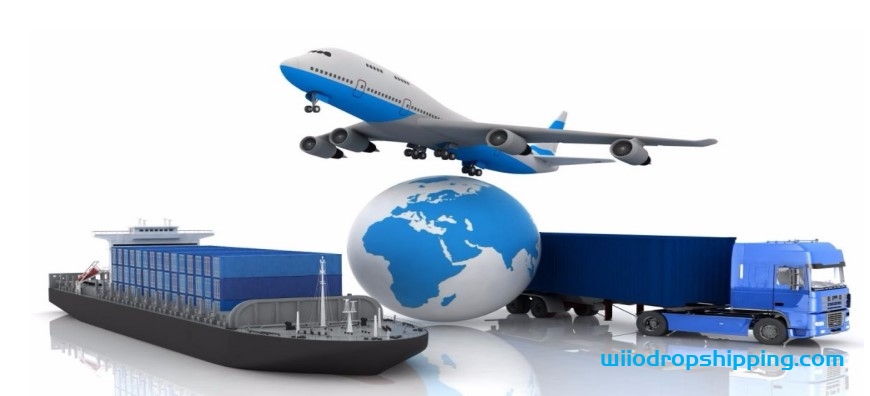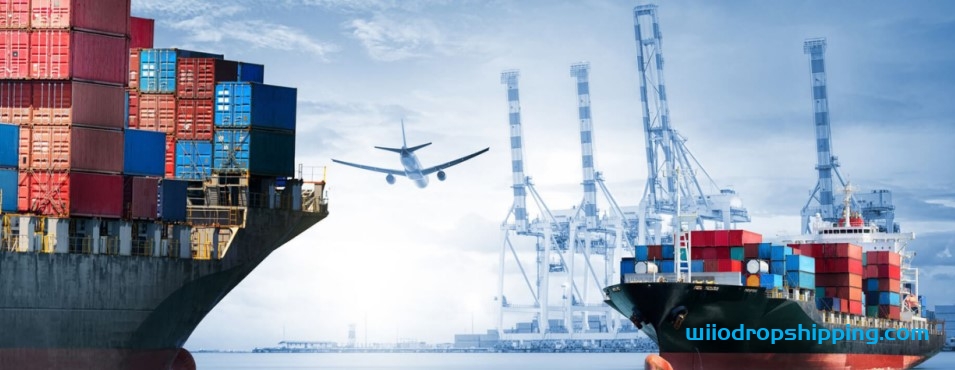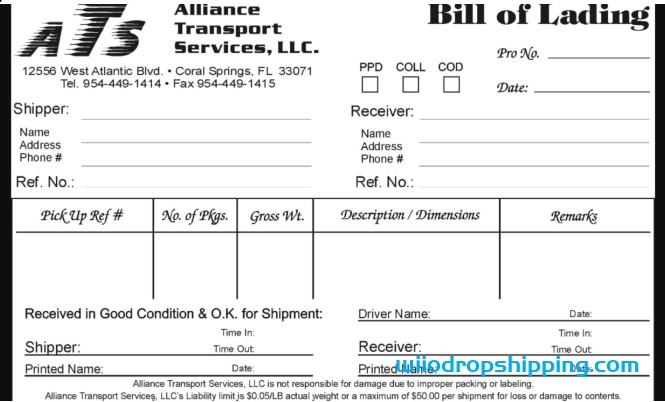Physical Address
304 North Cardinal St.
Dorchester Center, MA 02124

What are freight charges? Do you know how to calculate freight charges when importing from China?
If you are importing or exporting goods from one country to another, then you are bound to encounter freight charges.
Freight charges are mostly levied when you ship goods via ocean freight, rail freight, air freight, and road freight.
This blog is our way of helping you better understand freight charges and how you can save on them.
In this blog, we will explore the different types of freight charges and the factors that can affect these charges.
We will also be listing down the common freight terms used in international business so that you will have a better understanding of the freight industry.
So, let’s get started!

Companies can benefit greatly from doing business with enterprises in a global market.
While doing so, you’ll need to understand how much shipping charges will be.
When shipping items across the county or internationally, awareness of certain documentation and types of charges may help your organization avoid misunderstanding and losses.
In this chapter, we’ll give you a complete overview of freight charges, shipping charges, and what percentage do freight brokers charge in international business.
So let’s get started!
What do you mean by freight charges?
Freight charges are the fees charged by any carrier to transport cargo from its origin to its final destination.
The freight charges are determined by the kind of transportation used to convey your products.
There are so many factors that need to be considered while determining freight charges.
These factors include the entire weight of the products, the volume of products, the total distance that the products will travel, and others.
You have the option of transporting your cargo via ship or plane, among other means.
Among others, the most common type of freight charge is the consignee collect.
It implies that an individual who needs these products carried is the one who will pay for these costs.
So it means that you are just accountable for packing and shipping the items to their destination.
And, you do not have to worry about stuff including paying taxes or filing customs reports.

Shipping refers to the transportation of products by land, air, or ocean from one location to another. It might be a commercial or non-commercial cargo.
Shipment Charges are the costs associated with transporting a product from one location to another.
You must determine whether your goods are eligible for Parcel Shipping or Freight Shipping based on their size.
What percentage do freight brokers charge will be based on two types. These include the costs of landslides and the cost of the ocean. The cost of the ocean is divided into several categories, including:
Landslide charges are further broken into customs, rail, paperwork, and port. These are the costs covered in these categories:
Both shipping and freight are ways of transporting large quantities of goods.
Freight is generally used when businesses want to transport larger amounts of goods from point A to point B.
In comparison, shipping involves a smaller shipment of goods and involves the use of a plane or truck.
As a method of price comparison, shipping charges are higher than the costs associated with freight. Why? Because in freight, many more goods can be shipped at once than one single good.
Business owners and translators both know the importance of smooth communication between clients and customers.
Above all, understanding freight terms is also key for businesses in transporting goods from one place to another.
The following are some of the most commonly used freight terms with which you might want to acquaint yourself:
Carriers are people involved in the transporting of goods. They can be an individual or a corporation.
And, they can be hired by any service provider, an industry, or another company to do so.
A consignor is the shipping company that delivers the goods or services to the buyer. They are typically noted as “sellers” within your invoice.
They might, however, hold the title of shipper if they transport the items by a different method than the original seller.

Another important term you must know when dealing in international business is the consignee.
In simple words, the recipient of the products after they have been sent or transported is usually referred to as the consignee.
A contract is a legally binding document between both two parties that describes the freight shipment process. It includes all important details of the shipping process.
Containers are the most important part of international shipping. In simple words, a container is something inside of which other goods are kept or surrounded.
A Waybill is like a shipping map that tells you which road to take so that your goods can reach the destination.
It usually has information about the consignee and/or receiver, shipper, weight of the cargo being shipped, freight charges, and also who pays them.
Any charges that are not part of the standard delivery charge usually get labeled as additional services or charges.
These may include inside deliveries, residential, liftgate, and other such services.

It is the agreement between the shipper and the carrier. It includes the agreement’s terms as well as information regarding the shipper, freight, and consignee.
When the products arrive at their designated destination, the consignee will typically receive a notification or “arrival notice” and pick up products from the designated location.
Another important term used in international business is a bonded warehouse.
It is the place where goods are stored that have been imported into a country and are awaiting payment of duties.
A freight bill is a standard shipment document used by the carrier. More specifically, this agreement includes data about the freight rates, shipment terms, and the total charge.
Gross weight shows the total weight of the freight and its packaging. Furthermore, it shows the total weight of a truck and its contents.
Classification is used to allocate the shipment’s charges. And, it is determined by the cargo’s value, size, and density. So, it must be done correctly in order to obtain an accurate freight quote.
Another important term used in an international business is known as overcharge. And, this occurs when the charge exceeds the contracted amount.
If products are lost or damaged while in the possession of the carrier, a claim can be filed seeking compensation from them.
It specifies that the consignee is responsible for freight charges.
Most importantly, the decision regarding responsibility for shipping costs should be made during negotiations.

Now that you understand the terms freight charges and shipping. You should also know that there is a multitude of freight charges to be aware of.
Above all, the specific breakdowns of your bill will vary depending on the carrier. Here is a list of common freight charges you can expect to see on most invoices:
The consignee is the person or entity who takes full ownership of the freight when it gets to its destination.
Most importantly, the consignee pays for all the charges on arrival and is responsible for customs clearance as well as any taxes accordingly.
The shipper pays for the freight charges once the subject products pass through the port of the consignee. The freight charges are paid before the package is transported.
FOB or Free on Board is a shipping term used to indicate that the supplier is responsible for transporting the goods to a predetermined destination and then transfers ownership of the goods to the buyer upon delivery.
It’s important to know that any damages incurred by the equipment/goods during transit would be out-of-pocket expenses for the buyers. Moreover, the same rule applies to the consignee.
Their duty is to pay for freight fees until that point, after which delivery becomes free for them.

Cash on delivery payment means that the carrier will collect payment for goods from the consignee which in turn will be forwarded to the shipper.
In this case, there are usually additional costs imposed by the carrier for carrying out this particular transaction.
In this situation, freight charges are typically the responsibility of the shipper and are considered part of their cost.
Above all, the customer is obliged to pay for these charges regardless of whether they choose not to collect their items from their final destination.
If the shipper and customer have a good relationship, the shipper can negotiate better deals with shipping companies and schedule transit arrivals in more convenient places.
This method of shipping is similar to the FOB method i.e. cargo is borne by the consignee while the shipper pays all local charges as applicable in case of an import shipment.
Another important freight type agreement you should know is FOB destination and freight collect. This method of shipping indicates that the consignee receives possession of the products as well as pays for all freight charges.
It’s important to understand that the consignee, or the receiver, in this case, is required to pay for the load as well as local delivery fees upon delivery of the goods to their destination.
Moreover, the risk & responsibility for paying and settling all charges at the destination fall on the consignee.
In this method, the consignee is responsible for the freight, whereas the costs for such freight are compensated by the consignee’s agent at the origin.
Later on, the shipper will send a bill to the consignee for the freight charges.
Shipping costs ofte

n rise in proportion to what’s being shipped. And, the costs vary depending on the mode of transport that is used to deliver the items.
Now that you know the different types of freight charges when dealing in international trade.
Let’s have a look at some of the major factors that might affect the overall freight expense:
Fuel cost is a significant component that directly impacts freight charges. Therefore, freight pricing is altered based on the current price of fuel.
Shipping companies often include a fuel price component in their pricing model.
The price of maritime and road shipping is based on the cost of fuel. And, this cost is then passed on to the consumer.
In simple words, we can explain the scenario as:
If the price of fuel is high, shipping will become more expensive and will be reflected in the final quote provided by the shipping company to its client.
However, if costs fall, prices will fall too— enabling consumers to benefit from lower final costs.
The freight charges are affected by several factors— including its demand.
Simply, when freight is in high demand and transportation resources are limited, shipping companies can sell that scarce capacity at a premium price.
For example, on the busiest Black Friday shopping day of the year, planes, trains, and automobiles clog highways as people rush to get their holiday shopping done.
In situations like these, freight shipment capacities are also limited.
Companies like Amazon must compete for a spot on delivery fleets by offering steep discounts for shipping goods on certain days (and hours).
This process continues all through the holiday season when shipping resources are more abundant, but demand for those resources is still high.

At times of political uncertainty and war, shipping companies may have to increase their prices in order to recover losses.
When there are acts of terrorism such as the September 11th attacks or piracy along the coast of Somalia, shipping companies need to factor in extra costs for the increased risk associated with increased insurance premiums and greater distances covered by ships.
For example, a maritime ship that was previously sailing close to the coast may suddenly start taking a different route that covers so much more distance from decision-makers.
Like a lot of things, it’s often not just one factor that causes unforeseen circumstances to affect the shipping industry and freight charges.
How much do freight factoring companies charge can also be based on some Government involvement.
Governments can sometimes pass legislation that greatly affects shipping companies.
For example, a law may be introduced that imposes restrictions on the maximum number of hours that trucks can be driven at certain times during the year.
This implies that the shipments will take longer to get to their destination—ultimately resulting in a loss of revenue for the shipping company.
And, to compensate for such loss, companies increase their prices charged to clients.
Other government policies may include emission tax laws, bans on night driving, or limits placed upon the volume of cargo being carried by trucks.
As an entrepreneur of your own business, you want to find ways to maximize your company’s profits by reducing unnecessary costs as much as possible.
Lucky for you, China offers a wide variety of goods and services at very low prices!
That being said, one cost you can’t afford to cut is the price of shipping those items internationally since doing so will increase your operating costs significantly.
Luckily, freight forwarders and customs brokers can organize transport at more affordable rates.
When it comes to choosing the best freight forwarders in China, WIIO Sourcing comes first on the list.
Whether you’re shipping cargo from China to another city in your country or overseas, WIIO Sourcing will allow you to do it more cheaply than if you went about it on your own.
Since WIIO can organize transport at a cheaper cost, they allow the markets to adjust their costs accordingly and pass the savings onto their customers.
So, let’s have a look at some of the benefits you can get while working with WIIO Sourcing:
WIIO Sourcing will recommend the best time to send your goods in order to take advantage of any available discounts.
And, we’ll also suggest to avoid rush rate periods which may include weekends, holidays, and peak times throughout the year.
We will ensure that your cargo is stored properly in a storage warehouse and has access to necessary packing materials, logistics companies, and hand instructions for the delivery of the shipment.
When you’re shipping something fragile or cumbersome, WIIO Sourcing is in a position to help.
We will make sure that your cargo is safe during transport and will choose the best mode of transport so it reaches its destination on time, securely, and at an affordable cost.
WIIO Sourcing will be able to get you better prices because we deal directly with logistics and we also know local transport.
Additionally, our understanding of trade permits you to reduce the sales taxes that might tack on to your overall sales price. A lower price means more money for you and your customers!
When starting up your business, buying in bulk can seem like a daunting process, but with WIIO Sourcing on hand, some of the pressure is relieved.
We oversee multiple aspects of international shipping such as handling the paperwork and other governmental hoops— tracking shipments on a global scale and ensuring the security of your goods.
Some even go as far as to act as software that helps you decide which services will work out best for your situation in terms of price and delivery time.
We have a good relationship with the local suppliers and therefore we can get you all the things you need at low prices.
We can package your products while they move between two places. Not only can we provide a safe packaging solution, but we will also protect you against damages and losses by providing insurance on your cargo.
This reduces the costs of shipping significantly since you no longer have to bear the cost of replacing or repairing damaged goods in case they were to break while in transit.
And, there’s no need to pay for repairs when delivering them to their intended destinations.
We usually batch similar products together to save more space in the containers.
The larger the number of products in a single shipment, the cheaper it becomes to get the products shipped.
We also know how to choose the best type of container for your cargo.
By using our expertise and working with companies such as shipping logistics, you don’t have to worry about different containers since we understand each container’s capacity and specifications.
We will make sure your cargo is delivered safely, depending on if it will travel by air, land, or sea.
Airfreight services are comparatively more costly as compared to sea freight.
This is primarily due to the limited capacity of a plane, as well as the increased fuel consumption and operational expenses of a plane.
To determine a freight charge, the shipper must first decide which weight break to use depending on their shipment weight.
This can be done by dividing their total sum of weights by 100 within the 100-pound scale used in the rate schedule.
Then multiply this quantity amount by the applicable CWT used in that particular area and calculate accordingly.
In the trade shipping industry, things can get confusing because of terminology differences.
“Freight” refers to goods moved overland via truck or train. On the other side, “cargo” refers to products shipped internationally via air or ocean carriers.
A shipment of air freight is relatively expensive compared with the same amount of sea freight cargo.
Because a ship can carry more cargo at once than an aircraft, sea freight is much less expensive than air freight.
Conclusion
We hope you enjoyed our informative blog about freight charges and how to save on them.
Freight charges can be quite complicated when you are dealing with multiple freight carriers, especially if you are working with freight forwarders.
We really hope that this blog can help you understand freight charges better.
If you have further questions about freight charges and cost, or even if you are looking for a freight provider for your business, do not hesitate to contact us anytime.